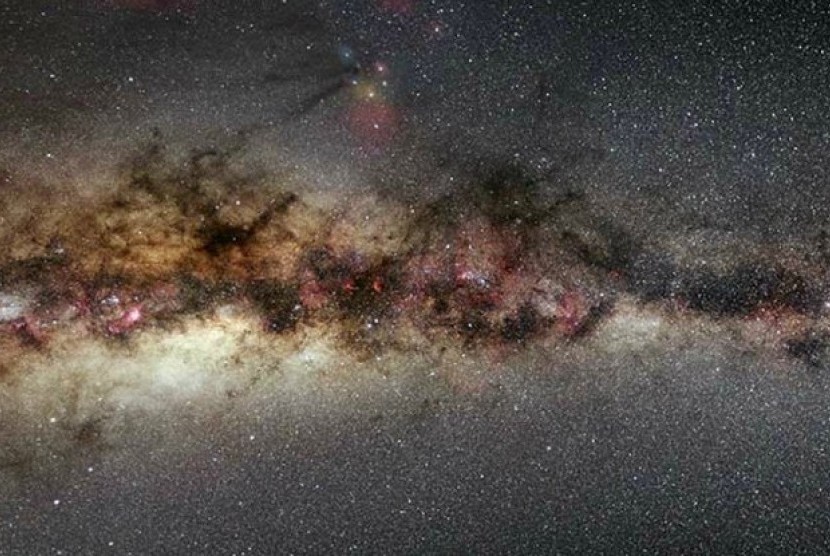Bisnis.com, JAKARTA – Astrophysicists have discovered a new region of the Milky Way galaxy, which is filled with bright blue, very hot stars that are about to explode.
Researchers made the most detailed map of the star-speckled spiral arms of our galaxy’s environment with the European Space Agency’s (ESA) Gaia telescope when they discovered the region, which they named Cepheus spur.
Located between the Orion Arms where our solar system is located and the constellation Perseus, the spurs are a belt between two spiral arms filled with massive stars that are three times the size of the sun and colored blue by their scorching heat.
Astronomers call these giant blue stars OB stars because of the many wavelengths of light they emit. They are the rarest, hottest, short-lived and largest stars in the entire galaxy. The fierce nuclear reaction that took place in their hearts made them six times hotter than the sun. And massive stellar explosions that end their lives, called supernovae, scatter heavy elements essential for complex life deep into galaxies.
“OB stars are rare. In a galaxy with 400 billion stars there may be fewer than 200,000, ”said study co-author Michelangelo Pantaleoni González, a researcher at the Spanish Center for Astrobiology (CAB).
“Wherever we find blue stars, we find regions of the galaxy that are the most active and most” alive, “according to the researchers.
The researchers compiled their star map by triangulating the star’s distance to Earth using a technique called stellar parallax. By comparing the position of the visible star observed from various perspectives during Earth’s orbit around the sun, astronomers can calculate the distance to the star itself. Using this technique, together with data from the ESA’s Gaia telescope, the team mapped the star at a distance beyond previously mapped and in areas of space previously thought to be empty.
“After months of work, we saw this beautiful map for the first time,” said Pantaleoni González.
Scientists proved that the new region is part of a spiral galactic disk that is made up of most of our galaxy’s material, and not just a random arrangement of stars, by watching them move consistently in the same direction.
Related content
They also suspect that looking at the position of the spurs, which are just above the galactic disk, could provide some tantalizing clues about the Milky Way’s past.
“If we live in galaxies with waves, which are tiny vertical variations or ripples across the disk, that could indicate a great evolutionary history for our galaxy,” said Pantaleoni González. “This could be a sign of past collisions with other galaxies.”
The next step for the researchers is to place additional OB stars onto more precise maps, which they hope will yield more insight into the structure of our Galaxy.
The researchers published their findings March 19 in the journal Monthly Notices of the Royal Astronomical Society.
Watch the Featured Videos Below:
Premium Content
Login / Register
–
–


